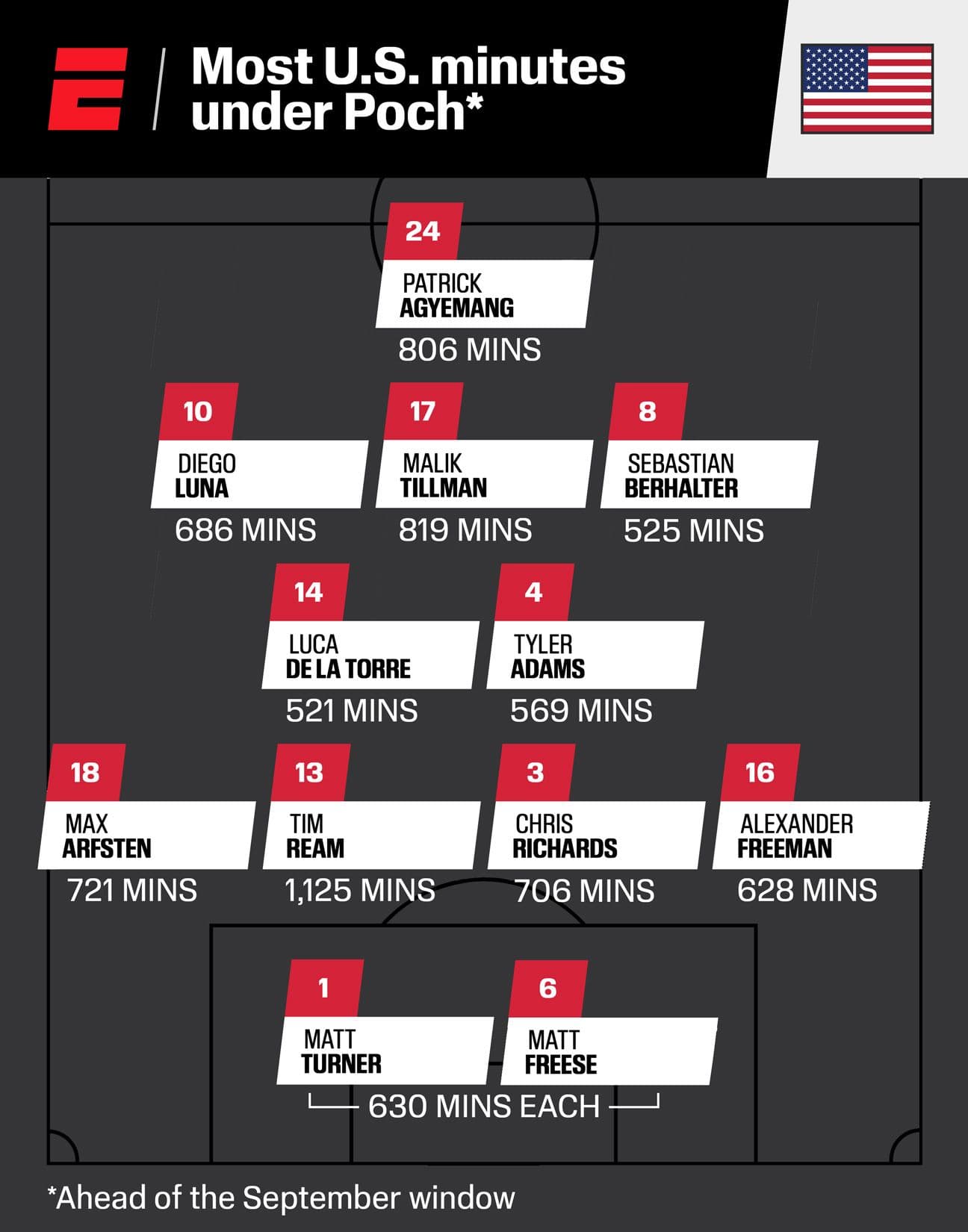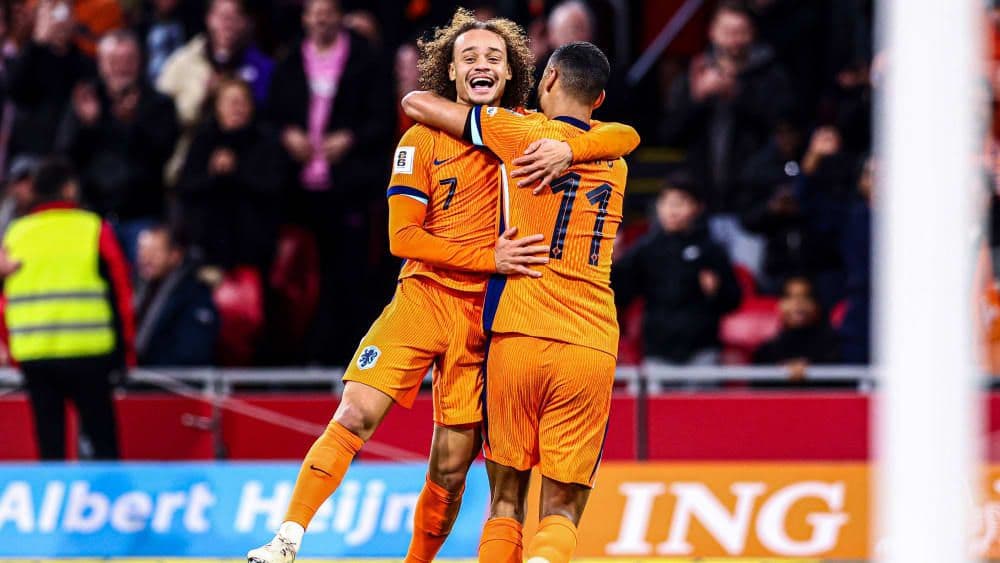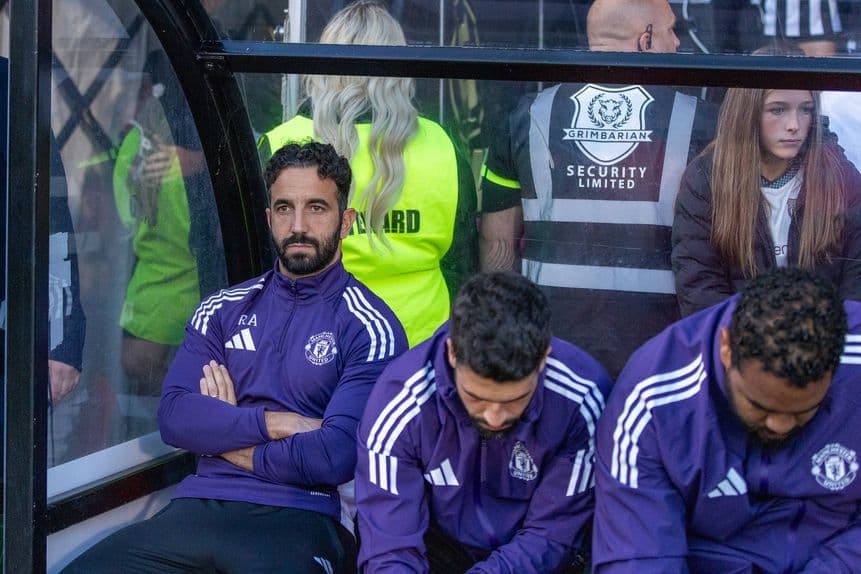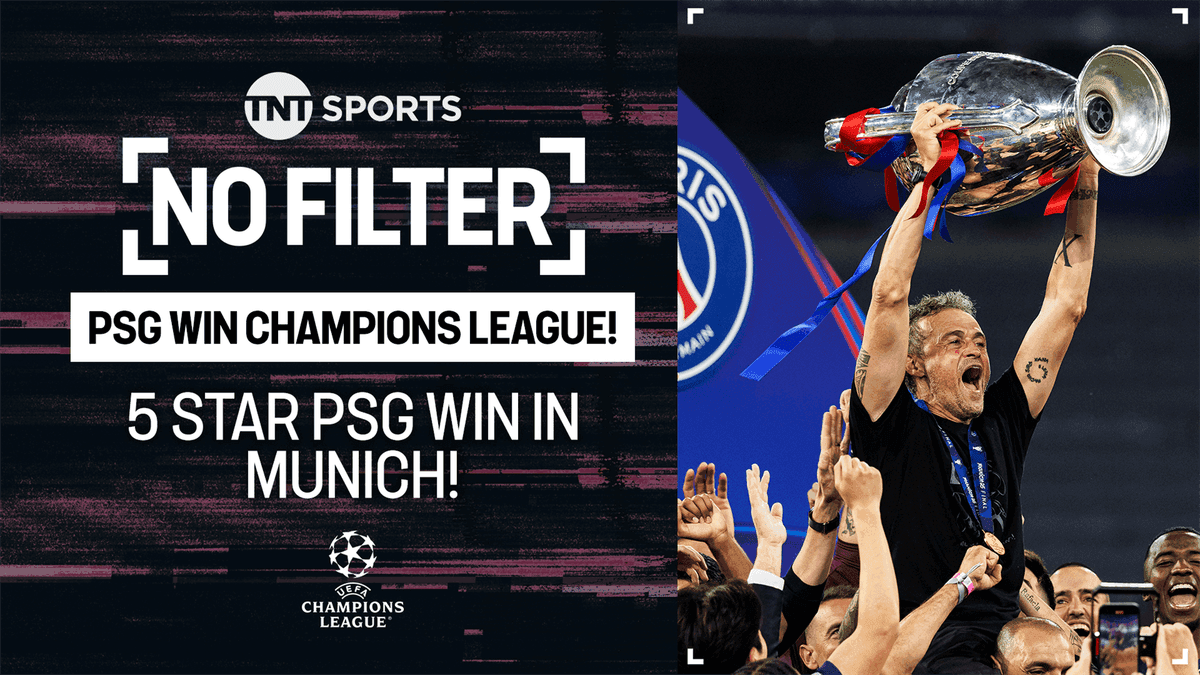Beyond the Scoreline: Japan's Test and the USMNT's Unconventional World Cup Blueprint
Dive deep into USMNT's World Cup strategy as Pochettino's 'destination-first' philosophy clashes with performance. Japan offers a critical test of his unconventional squad building.
Setting the Stage: USMNT's Rocky Path to 2026
The road to the 2026 World Cup, hosted on home soil, was always going to be a monumental undertaking for the . Yet, as the calendar inches closer, the path feels less like a smooth highway and more like a winding, unpaved trail. Recent performances, particularly the disappointing 2-0 loss to , have cast a long shadow over the team's preparations. That friendly saw field his 14th different starting XI in just 17 games, a clear indicator of the ongoing experimentation. Moreover, the defensive line, a crucial foundation for any successful team, featured its ninth different center-back pairing under his tenure. These tactical shifts, coupled with a string of inconsistent results, leave many supporters and pundits scratching their heads. While the coach maintains a long-term vision, even players like acknowledge the natural desire for victories: "I love the feeling of winning, so I would like to win games before the World Cup." This sentiment highlights a growing tension between the coach's philosophy and the team's immediate psychological needs. The challenge is not just about finding the right players, but creating a cohesive unit that can perform under pressure, a task that currently seems far from complete.
Pochettino's Paradox: Journey vs. Destination
At the heart of the USMNT's current trajectory lies 's intriguing, some might say perplexing, philosophy: it's not about the journey, but the 2026 destination. After the defeat, he famously declared, "We need to start to win when the World Cup starts." This statement encapsulates his belief that the preceding friendlies are primarily for evaluation, a sentiment reinforced by his August announcement that the current camp would be the "last camp to have the possibility for us to see players, new faces." He's fostering an "open system" where "no one has their place assured," pushing every player to fight for their spot. While this approach aims to build ultimate squad depth, it has led to a constantly rotating lineup, preventing the kind of familiarity and understanding that typically breeds success. Former USMNT legends and have voiced their concerns, questioning the wisdom of such prolonged experimentation with only four international breaks remaining before the World Cup preparations truly kick into gear. This paradox — a coach prioritizing future readiness over present results — creates a unique challenge, balancing the theoretical benefits of exploration against the practical need for cohesion and momentum.
The Samurai Blue Gauntlet: Why Japan Matters More Than a Friendly
Given Pochettino's 'destination' mantra, one might be tempted to dismiss the upcoming clash against as just another friendly. However, for a team still searching for its identity, facing the is far more significant. represents a quality opponent, a litmus test against a side known for its tactical discipline, technical prowess, and competitive spirit. This isn't merely an opportunity to try out new faces; it's a chance to gauge the true effectiveness of the ongoing experimentation under genuine pressure. As and have stressed, the clock is ticking. With a home World Cup looming, building momentum and generating a 'buzz' around the team is crucial for fan engagement and player confidence. A strong showing against a reputable opponent like could provide a much-needed psychological boost, offering a glimpse of what the USMNT could become. Conversely, another disjointed performance, regardless of Pochettino's long-term justifications, could further erode confidence and intensify the pressure. The game against , then, isn't just about the score; it's about the signals it sends regarding the team's readiness, resolve, and the viability of Pochettino's unconventional blueprint.
Finding Form & Forging Identity: Player Perspectives and Tactical Evolution
The constant churn of players, while intended to foster competition, undoubtedly impacts the team's ability to find consistent form and forge a collective identity. Players like , while understanding the coach's rationale, openly admit their preference for winning, highlighting the inherent tension within the squad. Pochettino's assertion that his team was "better than " despite the 2-0 loss might offer a glass-half-full perspective, but it doesn't address the practical difficulties of building chemistry with a constantly shifting roster. How can a defensive unit truly gel when the center-back pairing changes nearly every other game? These rotations, while showcasing depth, risk leaving the team without a core understanding of each other's movements and tendencies. The tactical evolution appears to be less about refining a specific system and more about assessing individual capabilities within various setups. This approach, while comprehensive, carries the risk of delaying the crucial stage of tactical consolidation. For the players, it means a continuous audition, a constant fight for their place, which can be both motivating and unsettling. The challenge is to transition from individual evaluations to collective synergy, a shift that must happen soon if they are to genuinely compete on the world stage.

The Road Ahead: Decoding the Signals for the World Cup Countdown
With only four international breaks left before the final World Cup preparations begin next summer, the signals emanating from the camp will become increasingly critical. 's declaration that this is the "last camp to see new faces" suggests a shift, but the question remains: will this translate into a more settled starting XI? The current data on player minutes paints a picture far from a definitive lineup, with key players like and either rested or notably omitted from recent squads. While the coach might assert "we know ", the continued absence of established talent in favor of experimentation has coincided with a concerning record of six losses in his last 11 games, including an underwhelming and a fourth-place finish in the . The friendly, therefore, is more than a match; it's a barometer. What tactical patterns emerge? Which players start to solidify their roles? The answers, or lack thereof, will be crucial in decoding whether 's long game is beginning to pay dividends or if the risks arriving at its home World Cup still searching for its best self. The countdown is on, and the time for clear signals is now.
Related Articles

Dutch Masterclass: How Efficiency and Emerging Talent Sealed a World Cup Ticket

Dutch Masterclass: How Efficiency and Emerging Talent Sealed a World Cup Ticket

Dynasty or Disruption? The Super Cup Showdown Where PSG's Dominance Meets Tottenham's Rebirth

Dynasty or Disruption? The Super Cup Showdown Where PSG's Dominance Meets Tottenham's Rebirth

Manchester United's Groundhog Day: Amorim and the Echoes of Past Managers

Manchester United's Groundhog Day: Amorim and the Echoes of Past Managers

The Summer's Toll: How PSG's Quadruple Season Opens the Door for Spurs' Super Cup Surprise
